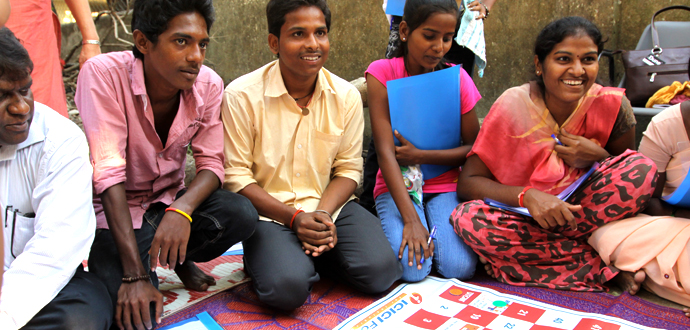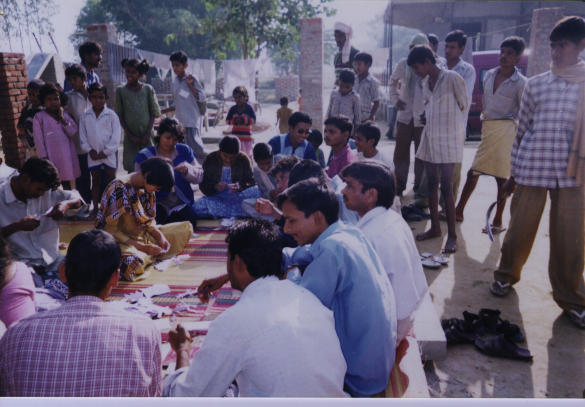
HP data scientists volunteered to analyze data on resources, facilities and records of education attainment to identify the triggers for better learning outcomes. The data analytics uncovered insights, such as the link between education resources, facilities and student retention and empowers Akshara Foundation to make better informed decisions on initiatives with the greatest student impact.
As a result of the project the HP volunteers were awarded the “2014 Global Volunteer Challenge: Most Impactful Program”, securing a U$20,000 grant for the Akshara Foundation. “Akshara Foundation had a wealth of data on over a million school children across nine years,” said Ashok Kamath, Chairman, Akshara Foundation. “We needed a way to turn this data into information that would enable us to make better decisions on which initiatives were helping students to learn and which weren’t.”
The volunteers were inspired by the HP Living Progress program that encourages HP staff to use their creative talents to transform lives, energise business and empower communities. The partnership was pioneered by Rajesh Krishnan, an experienced data scientist from HP’s Analytics and Data Management Practice. Motivated by the abundance of primary data available, HP approached Akshara Foundation with a fresh analytical perspective to turn the data into useful information identifying the links between education resources, facilities and Indian children’s education experiences.
In their personal time, over the course of nine months, the team of volunteers from India and Australia undertook the task of data preparation, involving the cleansing and amalgamation of four disparate corporate and government data sources. Cluster analysis was subsequently applied on the facilities and programs available across all Karnataka government schools. Despite large data sets and incomplete, unformatted data sources, by adapting to commercial algorithms, the team was able to provide accurate insights down to an individual classroom level.
However, the solution went beyond mathematical algorithms, presenting the results in clear and easily understood formats was key to the project success. For example, a custom dashboard was built by HP that provided insights including the optimal pupil teacher ratio and the ideal number of books per child for the best educational outcomes. It has also revealed some surprising insights as Krishnan explains: “A valuable insight the dashboard provided was that engagement was particularly low among 11 to 14-year-old girls,” saidRajesh Krishnan. “However, on further analysis we found that the introduction of separate bathrooms helped to significantly reduce drop-out rates. To have identified a way to keep this demographic in school is incredibly valuable.”
Akshara Foundation plans to use the HP grant to further develop the Karnataka Learning Partnership collaborative platform. The non-profit plans to combine school and community data on education and engage HP’s data analytics capabilities for greater impact. With this progressive use of data and analytics, HP and Akshara Foundation hope to extend the program across India, and will continue to improve learning outcomes for millions of students.















